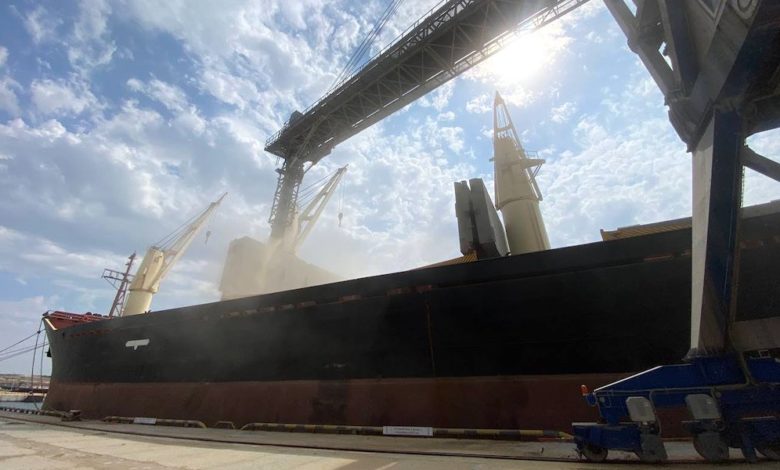
The Ukrainian prime minister has given the go-ahead for locals to work as seafarers abroad, a significant fillip to crewing levels which have been hit hard in the six months since Russia invaded Ukraine, leading to a mass mobilisation of all men to help in the war.
Kitack Lim, the secretary-general of the International Maritime Organization (IMO) is due at the port of Odesa this morning having spent yesterday at Romania’s Constanta port.
Lim is expected to board a ship and speak to seafarers and get an understanding of how the one-month old Black Sea Grain Initiative is progressing.
The initiative, signed between Ukraine and Russia in Istanbul late last month, provides safe corridors for Ukrainian exports from three sea ports. The UN-backed shipping program celebrated the surpassing of 1m tons of shipments on Saturday. Ukrainian officials now want to triple monthly volumes, aware that the agreement has only been signed for an initial 120 days through to October.
“As the world grapples with food insecurity and high prices, the importance of this initiative is clear. As increased volumes of Ukraine’s agricultural production are now heading to market by sea, confidence has grown in the food and shipping industries, driving down prices and reducing risk,” commented Amir Abdulla, the UN’s coordinator of the Black Sea Grain Initiative.
The silos in Ukraine are still stocked with millions of tons of produce from previous harvests. The Black Sea Grain Initiative has started creating some space but much more grain needs to shift to make space for the new harvest.
Equally important and urgent is the export of fertilizer, including ammonia, under this initiative, so that farmers across the world can continue food production for next year at an affordable cost.
“These million tons are just a beginning: the world cannot afford to have food and fertilizer held up by anything. Every shipment cleared through this route helps to calm markets, boost food supplies and keep farmers producing,” Abdulla said.
Ukrainian infrastructure minister Oleksandr Kubrakov, said that as of Friday, 44 ships had left Ukrainian sea ports under the deal, carrying 1m tons of food to 15 countries worldwide.
“We are ready to increase our volumes to 3 M tons per month to prevent global food shortage,” he wrote on Twitter.
By river, the volume of Ukrainian exports is increasing fast. On Saturday, 11 ships carrying 45,000 tons passed through Ukraine’s section of the Danube, the largest convoy to date since Russia’s full-scale invasion began.
“Since March, we have managed to transport more than 4m tons of grain through the Danube ports; as of now, this is more than by all other modes of transport. The dynamics of the increase is significant. In March, our ports processed only 16,000 tons of agricultural products for export; in July, the figure was almost 1.4m tons,” Kubrakov said.
